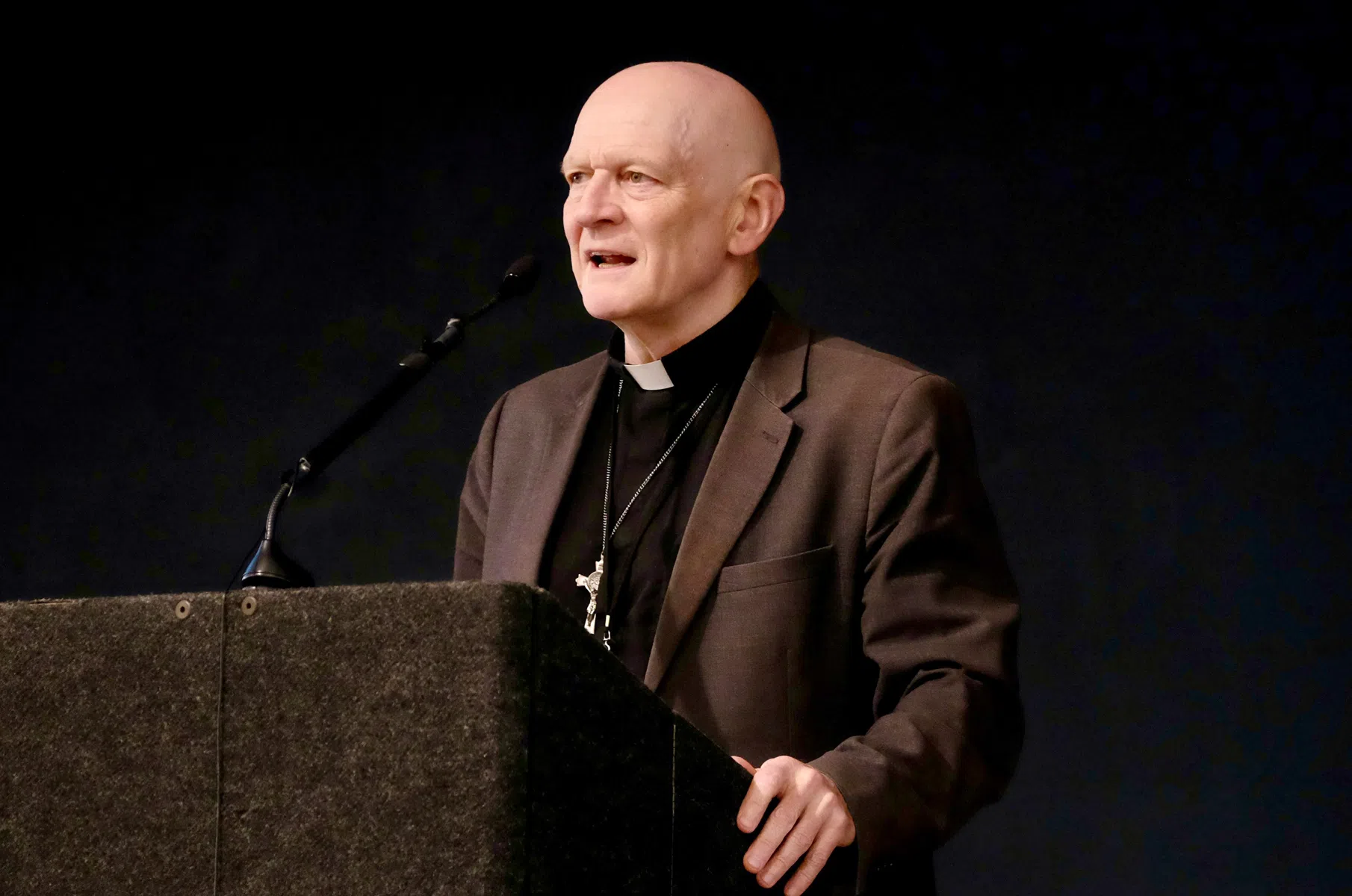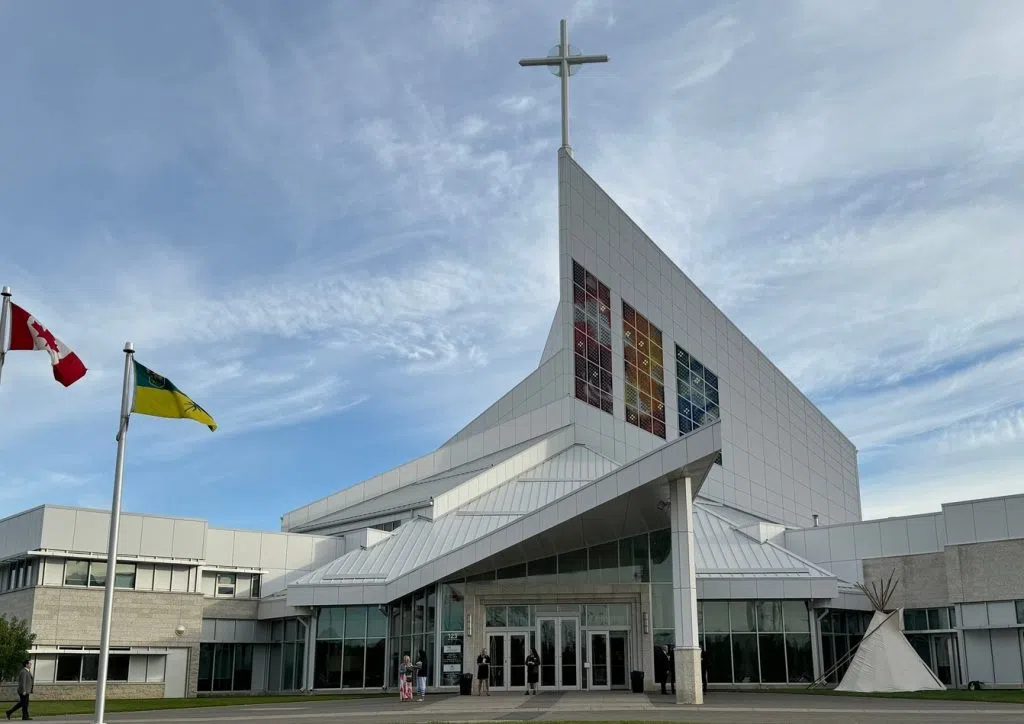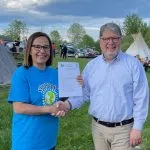
Catholic Bishop speaks frankly about Reconciliation and the Church
A Bishop from the Roman Catholic Church in Saskatchewan has been vocal about the Catholic Church’s role in advancing Reconciliation, and he believes there’s more work to do.
“Absolutely (the Church needs to do more),” Bishop Mark Hagemoen told EFN Media.
The local (focus) is how are we relationship building in our own context. There are more Indigenous nations in Canada than there are nations in what was formerly Eastern and Western Europe. So where we live, how are we impacting, reaching out to, and relationship building with our people here?”
Throughout his pastoral career, Hagemoen, the eighth Bishop of the Roman Catholic Church in Saskatoon, has advocated for Indigenous people and Reconciliation. Prior to being installed as Bishop in Saskatoon, he was the Bishop of the Diocese of Mackenzie-Fort Smith, which includes the Northwest Territories and parts of Northern Saskatchewan and Western Nunavut – an area primarily made up of Dene, Métis, and Inuvialuit peoples.
He also serves on several committees, including the Indigenous Reconciliation Fund – a fund started by Catholic Bishops to accept donations to advance healing and Reconciliation initiatives. And he is a national member of Our Lady of Guadalupe Circle – a Catholic coalition of made up of Indigenous and non-Indigenous people, engaged in fostering relationships between the Catholic Church and Indigenous people.
“As Bishop here, I’m hearing from people that the local is extremely important. If we’re not relationship building, we’re not moving forward,” said Hagemoen.
He said relation building takes time and a lot of communication.
“It’s not a check-list that you get through,” said Hagemoen. “This is going to be with us for a long time if it’s going to be done well.”
The Catholic Church has a complex and ugly history with Indigenous peoples in Saskatchewan, with additional unmarked gravesites from Residential Schools ran by the church being repeatedly found around the province, including the Qu’Appelle Indian Residential School and most recently the Beauval Indian Residential School this past June.
Hagemoen said the Catholic Church has taken efforts, both locally and nationally, to reconcile their part in Residential Schools. In 2022 Pope Francis travelled to Canada and met with Indigenous communities at Maskwacis in Alberta to beg forgiveness for the “evil inflicted” on Indigenous people.
“That was a huge event, and we’re still reflecting on what he said and did on that extraordinary visit,” the Bishop said. “I think that’s one of our biggest, broad accomplishments.”
In 2023, the Vatican disavowed the Doctrine of Discovery – a centuries old legal concept that justified Europeans’ claiming of Indigenous lands. Regina Archbishop Donald Bolen characterized it as a “small step”, while Idle No More co-founder Sylvia McAdam said “words are beautiful but I want to see action.”
Locally, Hagemoen said the Truth and Reconciliation Commission’s (TRC) Calls to Action have guided much of their work with local communities. His predecessor, Bolen, created a Diocesan Council of Truth and Reconciliation to deal with relationship building and healing.
Hagemoen also points to the increased number of Indigenous leaders, Elders, teachers, and professionals in the Catholic school and healthcare systems as an example of the local work they’re doing.
He also cites a teepee set up annually at the beginning of the school year beside St. Mary’s Parish as a symbol of continued relationship building.

“In scriptures, the tent is a holy place, it’s the place where people come together humbly to meet the Lord in His protection and care. So it’s wonderful to see the teepee, which is the tent for Cree people, to be co-located right beside the Cathedral,” he said.
Despite the efforts, Hagemoen says education and understanding has a ways to go.
He implied that funding within the church for Reconciliation-related causes do not have the same levels of support in comparison to other initiatives.
“To be candid, I find when we fundraise for our Indigenous Reconciliation fund here, there’s people who are very supportive, and then there are people who are trying to be supportive but they’re not there yet,” he said. “I think a lot of it comes from non-Indigenous people not fully understanding some of the challenges Indigenous communities deal with.”
Hagemoen said Reconciliation and the Calls to Action shouldn’t be a “let’s get it done and over with,” approach.
Educating people on what true progress looks like is one of their biggest challenges, he said, because the “forgive and forget” attitude still exists in some communities.
“There’s an adage about forgiveness that comes from the Scriptures: you don’t forgive you forget, you forgive to remember so you don’t commit the same sin or problem again. That parallels with Indigenous wisdom that I’ve heard in several contexts,” he said.
“So I challenge this forgive-and-forget nation because I don’t think that’s what our Christian faith really says.”
Hagemoen said respecting and embracing diversity is a key to existing in harmony.
The history of Indigenous and non-Indigenous contact involves, he said, the suffocating of one people’s by another.
“A movement to suffocate a person’s culture or distinctiveness may be in violation of how God created us. We want to see a respectful honouring and recognition of cultures – God created the diversity,” said Hagemoen.
“So why is the tipi there against the Cathedral? Maybe to represent that we live in a land of Treaty 6, where two tipis, if you will, stand side-by-side on this journey together in faith and hope.”

